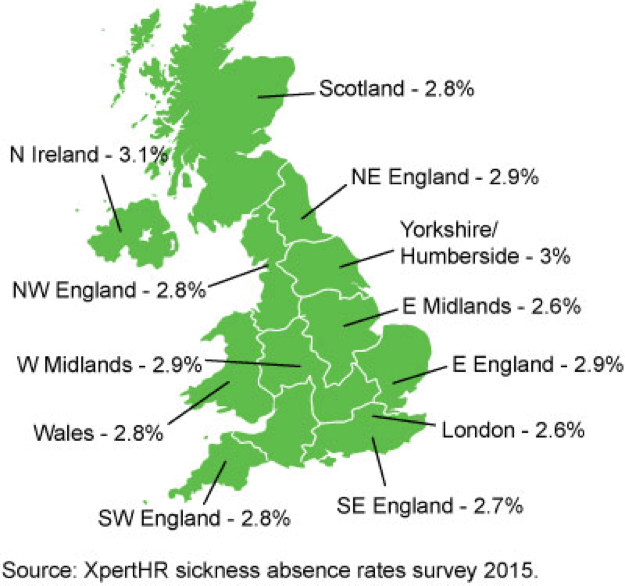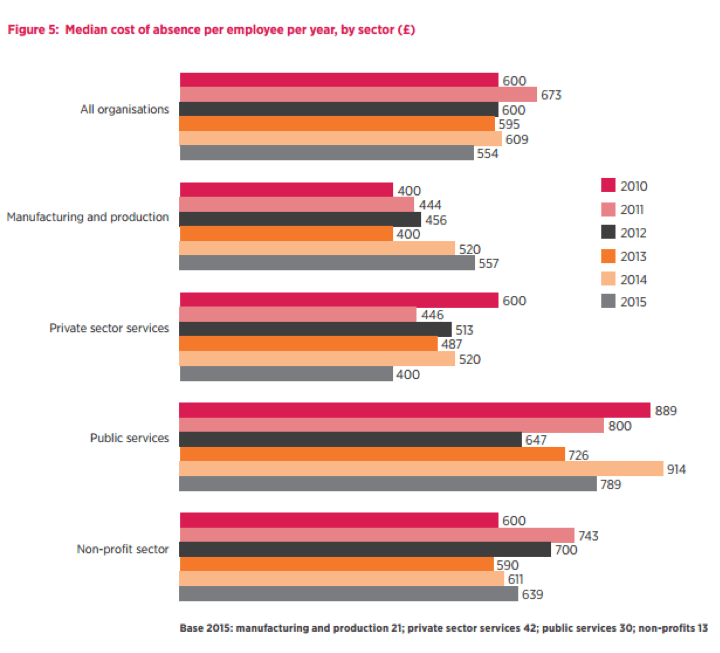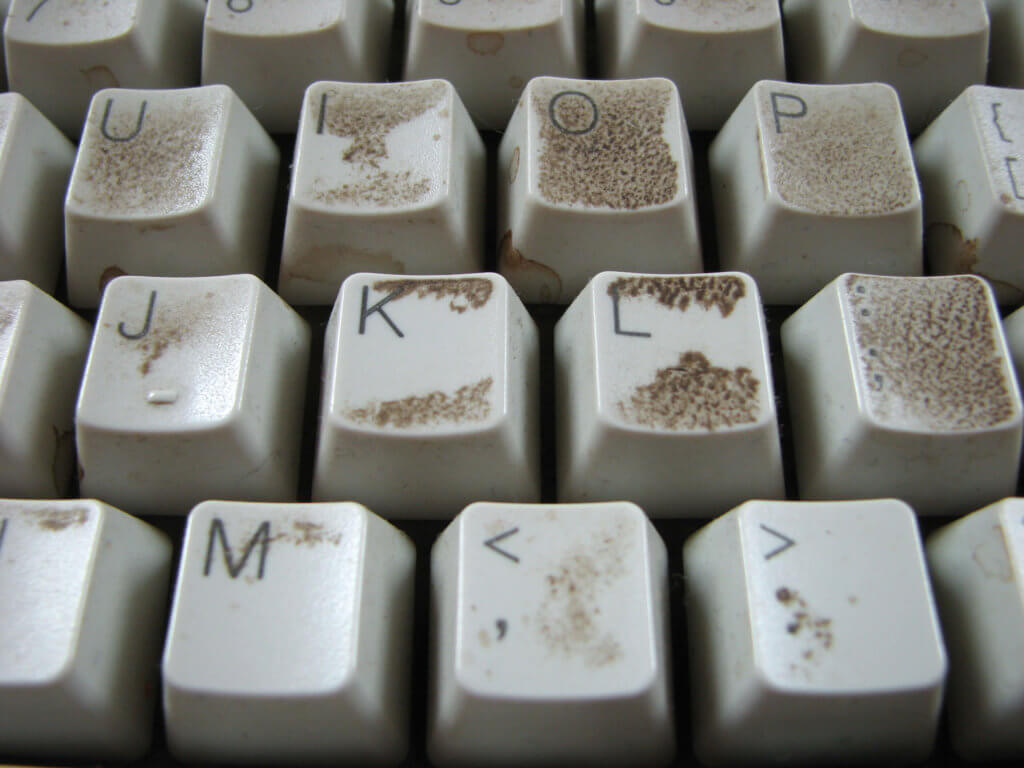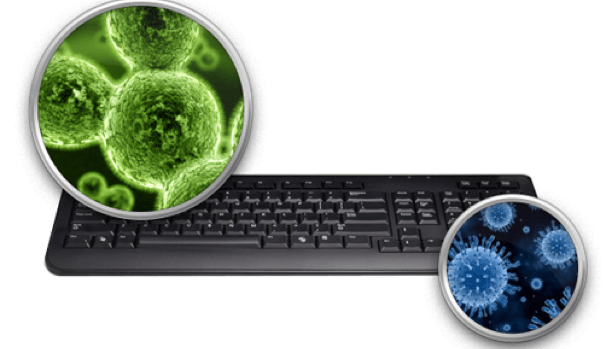Introduction
During the writing of this article I have washed my hands at least 42 times and made my way through several disinfectant wipes…find out why…
The issue
In the largest survey of its kind, rates of sickness in the public sector were revealed to be 3.5% (median figure) with a figure of 2.2% in the private sector. The research carried out by XpertHR warns that this translates as a figure of 8.1 days per employee for the public sector and 5.1 days per employee in the private sector. Sickness in the workplace is a problem that has a negative impact on any business. The cost to UK businesses is on average £16 billion.

Image Source: XpertHR
According to the annual report produced by the CIPD, the professional body for HR and people development, the median cost across all industries of employees’ absence is £554 per day.

With the permission of the publisher www.cipd.co.uk
Clearly, the costs don’t end at the work not being produced while staff are absent. The OHBM, Occupational Health Business Management organisation report published in March 2015 outlines the costs. “The Effects of Sickness Absence on Your Workplace” document lists the direct and indirect impact on businesses/organisations:
- Reduction in productivity due to fewer workers.
- Obligations to pay the salary or sick pay of absent workers.
- Having to find, train and pay for temporary cover.
- The possibility of reduced customer satisfaction.
- Reduction in motivation and morale from the other staff.
What can employers do to improve the situation? A great place to start is to improve workplace hygiene.
Your keyboard
What are the causes of ill health in the workplace? One issue could lie within your keyboard.

Research carried out by the University of Arizona revealed that infections and viruses can be spread to over half of the workforce within just four hours. Researchers discovered that in the workplace, “the hand was quicker than the sneeze in the spread of disease”. Approximately 80% of the population now work in offices, office hygiene has never been so important. One of the hotspots at the root of the problem is unsurprisingly, keyboards! According to an article in the Daily Mail, ‘over 10 million bacteria lurk on the average desk with 7,500 organisms hidden in your keyboard’. The team at the university felt that, “simple interventions…have great efficacy”.
A Which? Study in 2012 tested for E.coli, coliforms, staphylococcus aureus and enterobacteria. The results revealed that computer keyboards can harbour more germs than a toilet seat. One of the keyboards tested revealed five times more germs than the average toilet seat; this is perhaps not surprising when you think about how keyboards are used and the lack of hygiene surrounding their use. Hygiene expert Dr Lisa Ackerley says, “working conditions are a ‘key contributor’ to the 131 million working days lost each year in the UK’. Pathogenic organisms are transferred between office surfaces by our hands and then into our eyes and mouths. Dr Ackerley’s advice is that “better hygiene measures could result in fewer sick days”.
Ideal Response carried out random testing on the keyboard hygiene of a local office, with quite shocking results.

We selected seven keyboards at random and tested them using our advanced ATP Clean-Trace surface testing methods. The results reveal overall contamination by testing for the biological molecule Adenosine triphosphate, found in living cells. The test gives an accurate measure of the concentration of living organisms present by adding the enzyme luciferase and measuring the light produced in the reaction. The results are frankly, revolting!
Anything over 500 light units is unclean…our keyboards averaged 3,127.
How would the surfaces in your workplace compare?
What could you do to decrease staff sickness in your organisation?
- Education! Regular staff training highlighting:
- The consequences of poor hygiene
- The importance of regular and effective hand washing
- Strategically placed, visible information reminding staff of effective hygiene procedures
- Avoid food being eaten at work stations, crumbs feed the microorganisms and allow them to breed.
- Put a regular programme of professional decontamination and sanitation in place
Ideal Response have provided reliable and effective sanitisation services to businesses for over 15 years. We are proud to be the exclusive UK provider of BioSweep technology, thorough and complete decontamination with 100% guarantee.
Results
✓ Peace of mind
✓ A cleaner, healthier environment
✓ Reduced staff absence due to contamination and infection



